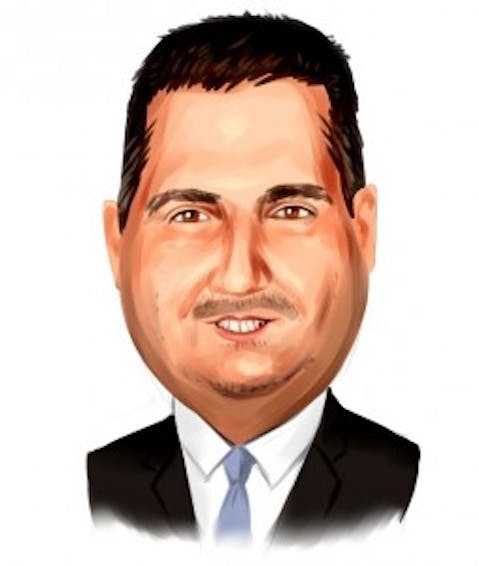Editor’s Note: Related tickers: Herbalife Ltd. (NYSE:HLF), UBS AG (ADR) (NYSE:UBS), Dell Inc. (NASDAQ:DELL), Goldman Sachs Group, Inc. (NYSE:GS), J.C. Penney Company, Inc. (NYSE:JCP), Caterpillar Inc. (NYSE:CAT)

Larry Robbins usually describes the approach of his $6.4 billion hedge-fund firm, Glenview Capital Management, as “suggestivist,” cultivating amicable working relationships with corporate management to propose shareholder-friendly changes. Now he’s becoming an activist for the first time, challenging one of his holdings in a proxy contest that is under way. The switch in tactics isn’t the result of any shortfall in Glenview’s performance. Its flagship, the $4.8 billion Glenview fund, returned 26.8% last year, and over 10 years has provided an annualized 13.4% gain to its investors, due in large part to Robbins’ focus on health-care stocks.
David Einhorn Has Closed His JCPenney Short Position And The Stock Is Spiking (BusinessInsider)
Greenlight Capital’s David Einhorn closed out his J.C. Penney Company, Inc. (NYSE:JCP) short position in the second quarter, according to a letter sent to investors, Reuters Katya Wachtel reports. “J.C. Penney Company, Inc. (NYSE:JCP) (short): This was our most profitable short of 2012. Though the retailer was poorly positioned, the shares rocketed in early 2012 based on overhyped promises put forth by a highly promotional CEO. Following the presentation of its strategy, the new CEO dumped a bunch of his personal stock on the market. We doubted the new strategy would succeed. We covered when the Board fired the CEO before he could turn the company into a J.C. Penney Company, Inc. (NYSE:JCP) stock,” Einhorn wrote in the letter. …So far, Ackman, who has has 17.74% stake in J.C. Penney Company, Inc. (NYSE:JCP), has taken a bath betting on the retailer.
Herbalife surge costing hedge fund mogul $200 million (NYPost)
Hedge fund mogul Bill Ackman likes to say short selling causes “brain damage” — and his $1 billion short on Herbalife Ltd. (NYSE:HLF) is proving a case in point. Herbalife Ltd. (NYSE:HLF) shares have surged in the past two weeks, pushing Ackman into the red for the first time since he began building the short in June 2012. His $12 billion Pershing Square hedge funds are carrying a paper loss of about $200 million, including borrowing costs. The bet has cost his funds about 2 percent since they put on the short, sources said.
Steven Cohen throws a party despite his fund’s indictment (Reuters)
Hedge fund billionaire Steven A. Cohen did not let the filing of criminal charges against his $14 billion SAC Capital Advisors get in the way of a party this weekend at his vacation estate in tony East Hampton, New York. The Saturday night party at Cohen’s 10-bedroom home on Further Lane took place two days after federal prosecutors in New York announced a five-count criminal indictment against SAC Capital that portrayed the 21-year-old Stamford, Conn.-based fund as a breeding ground for unlawful insider trading.
Big hedge funds enjoy buyers’ market for recruitment (eFinancialNews)
Marshall Wace, which has seen its assets grow 60% in the past 12 months to $10.7 billion, is planning a recruitment drive in the US, which will be spearheaded by partners Daniel Roberts and Nick Nielsen, who are relocating to New York. The firm plans to hire about a dozen portfolio managers in the next couple of years and is moving its US office from Connecticut to mid-town Manhattan. Last week Izzy Englander’s $18.5 billion US hedge fund Millennium hired Stephen Keller from UBS AG (ADR) (NYSE:UBS) as head of European business development, a new role to source potential portfolio management hires.
When dealing with money, check hedge fund’s back office (SCMP)
The lure of high returns that aren’t correlated to other markets has led to an explosion of global hedge fund money, to more than US$2 trillion. Unfortunately, “explosion” also describes a number of hedge funds that literally blew up over the years due to fraud or poor risk controls. Hedge funds are typically managed offshore, outside the jurisdiction of local regulators. The funds use wide-ranging investing styles and ask for maximum flexibility from investors on the ways they can use their money. The managers of these often obscure, boutique funds move capital quickly from trade to trade, into many different accounts.





